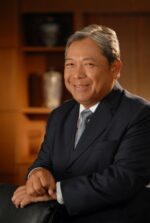In seeking out the country’s neighbors at the Asia Zero Emission Community (AZEC) meeting in Tokyo, the Philippines reiterated its commitment to transition to renewable energy sources and persist on this path over time.
This was learned from Energy Secretary Raphael Lotilla who told the gathered energy officials that the Department of Energy (DOE) is intensifying its decarbonization program and asked for continued support.
Lotilla issued the appeal during at the AZEC ministerial meeting in Tokyo, Japan just last week.
He said the country’s decarbonization effort cuts across all economic sectors and crafted in a manner meant to build fresh investments from Japan and as a follow-up effort on President Ferdinand Marcos Jr.’s state visit in February.
Lotilla said Japan leads the region in the transition to clean power through various methods, including technologies developed by its companies.
“Our government is always keen to work with the private sector on projects which would be mutually beneficial for both parties. With this, our gradual transition to a low-carbon economy entails the diversification of our energy sources, especially cleaner and indigenous sources, such as renewable energy, to intensify decarbonization efforts across all economic sectors as part of our broader national strategy,” Lotilla said at the meeting.
He also said full foreign ownership in the exploration, development and use of the country’s renewable energy sources is meant to attract investors and assure them that energy infrastructure projects under his watch attain “a level playing field both for businesses and investment prospects as the country transitions to a low-carbon economy.”
Lotilla stressed that full foreign ownership opens rich opportunities in new areas in energy development, including gas pipelines for private or own use, among others.
Apart from the Philippines and Japan, the AZEC also met with representatives from Australia, Brunei, Cambodia, Indonesia, Laos, Malaysia, Thailand, Singapore and Vietnam.
The DOE targets to boost the renewable energy share in the power generation mix to 35 percent by 2030 and 50 percent by 2040 from the current 22 percent.
This is seen to cut greenhouse gas emissions by 35 percent or 119 million tons of carbon dioxide by 2040.
The country’s electric vehicle (EV) program seeks to convert at least 50 percent of vehicles to EV by 2040 across all sectors or 6 million EVs and the deployment of 130,000 charging stations.






